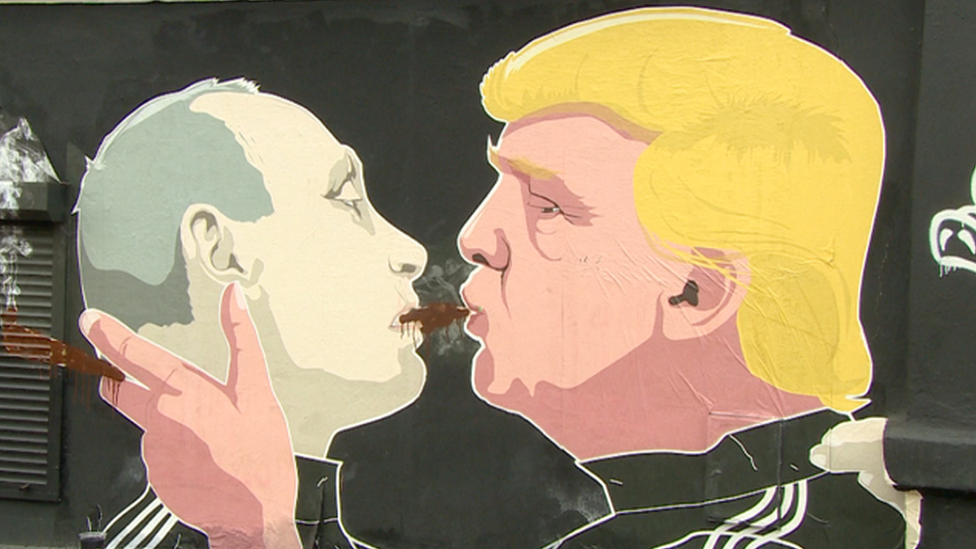How would a thawing US-Russia relationship work?
- Published
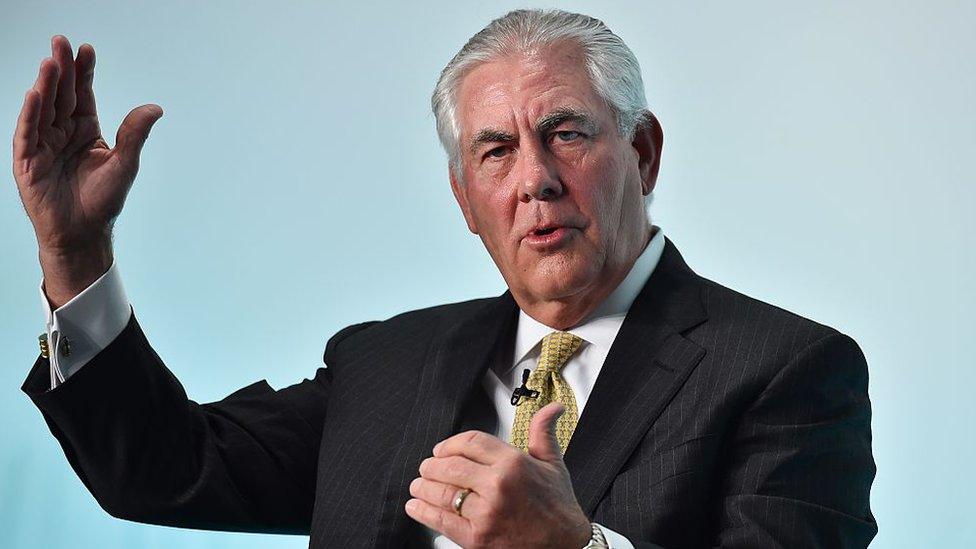
Putin gave Rex Tillerson an Order of Friendship award in 2013
Donald Trump's anticipated appointment of Exxon Mobil Chairman and CEO Rex Tillerson as Secretary of State firms the view that his administration's policy will be transactional, a change that will benefit Russia.
On 19 December, the US Electoral College will certify Donald Trump as the next president. But it is increasingly evident that the big winner in the 2016 campaign is Vladimir Putin.
Whether or not Mr Putin interfered in the election to favour Mr Trump - the CIA seems to think so, while the FBI is less certain - there is little doubt Russian operatives hacked both the Democratic and Republican National Committees with the intent of undermining confidence in the American electoral system.
Emails from the DNC were released throughout the campaign by WikiLeaks, providing fodder for the media and a distraction for the Hillary Clinton camp.
President Barack Obama has ordered the intelligence community to assess what happened. Mr Trump reacted sceptically to preliminary reports that Russia was behind it and, at least by inference, that it was beneficial to his election.
"These are the same people who said that Saddam Hussein had weapons of mass destruction," he said in a statement, increasing the prospects of an antagonistic relationship with the intelligence community.
The Tillerson factor
During the transition, Mr Trump has shown little interest in intelligence briefings.
He expressed confidence while campaigning that he could work with Mr Putin to repair the fractured US-Russian relationship.
That intention has been reinforced with the news that Mr Tillerson is now likely to be his choice for secretary of state.
The nomination of Mr Tillerson, who like Mr Trump has no prior government experience, is just the latest example of the president-elect's unorthodox and unpredictable ascendance to the White House.
He promised better deals, and views foreign policy as a means to achieve them.
Mr Tillerson's experience running one of the leading global multinational corporations is certainly relevant to his anticipated role as diplomat-in-chief.
He undoubtedly knows key players in major energy producing states across the Middle East, Central Asia and Africa.
And he knows Mr Putin, who bestowed on Mr Tillerson an Order of Friendship award following the completion of an exploration deal in 2013.
His views on Russia, Mr Putin and sanctions will certainly receive scrutiny during his Senate confirmation hearing.
International sanctions derailed Exxon Mobil's Russian ventures following the 2014 Ukraine crisis and its opportunistic annexation of Crimea.
The Syria crisis
If Mr Trump hopes to achieve a more pragmatic relationship with Mr Putin, what deals are actually possible and beneficial given the narrowing interests between Russia and the United States?
Mr Trump seems poised to alter Washington's approach to Syria. Rather than seeking the removal of Bashar al-Assad as the end product of a political negotiation - a worthy goal but increasingly unachievable in light of the Russian intervention - the Trump administration could focus in the near term on stabilising specific areas under government and Kurdish control.
A comprehensive solution would be deferred until so-called Islamic State (and its al-Qaeda cousin Jabhat Fateh al-Sham) are defeated.
Russian sanctions
Any thaw in the US-Russia relationship will increase the momentum towards relaxing sanctions imposed in the aftermath of the Ukraine crisis in 2014.
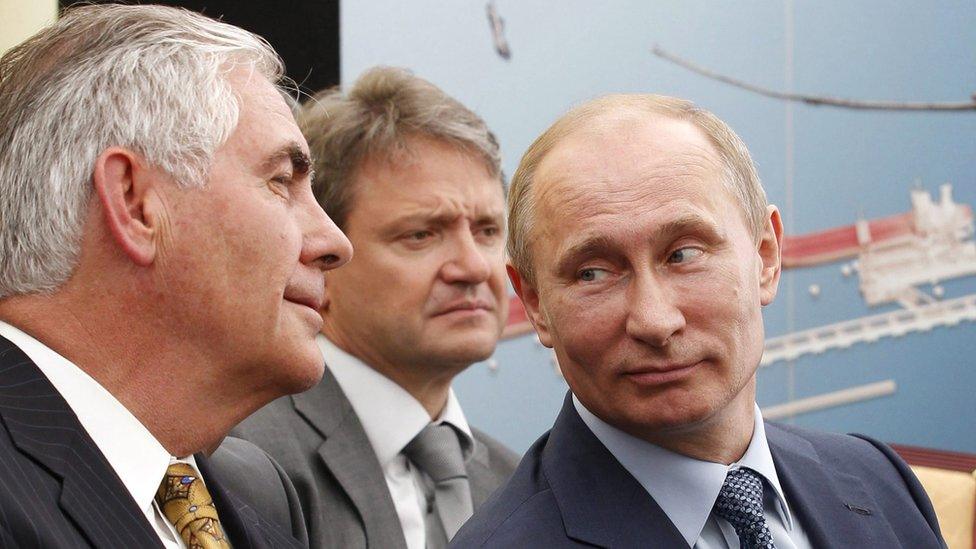
Exxon Mobil CEO Rex Tillerson (left) with Russian President Vladimir Putin (right)
While they have created costs for Mr Putin, the sanctions will not impel the return of Crimea to Ukraine.
The Trump administration could consider some easing of sanctions in return for strict adherence to the so-called Minsk peace process and an end to Russian interference in eastern Ukraine.
Crimea would once again become a bilateral issue between Russia and Ukraine.
Nuclear deal
Such steps would certainly be viewed as Putin victories. What's in the deal for the United States and the West?
In return for bringing Mr Putin in from the cold, the Trump administration should gain a Russian commitment to resume strategic arms negotiations aimed at further reductions of their respective nuclear arsenals and clarification of their respective nuclear modernisation plans.
A nuclear arms treaty is a major feather in any presidential cap. Ronald Reagan did it. These are viewed as good deals that can be verified.
Getting there may require Mr Trump to overrule his projected deputy secretary of state John Bolton, an ardent advocate of American hard power. But that's what being president entails.
And what about Russia's interference with the 2016 campaign?
The department of defence has spent the past decade building an offensive cyber capability. This is just the kind of scenario for which Cyber Command was created.
Since Mr Putin has denied Russia's involvement in the election hacking, the United States need not announce a proportional response. If done right, Mr Putin will get the message.
P.J. Crowley is a former US Assistant Secretary of State, a distinguished fellow at The George Washington University Institute for Public Diplomacy & Global Communication and author of the forthcoming book, Red Line: American Foreign Policy in a Time of Fractured Politics and Failing States.
- Published13 March 2018
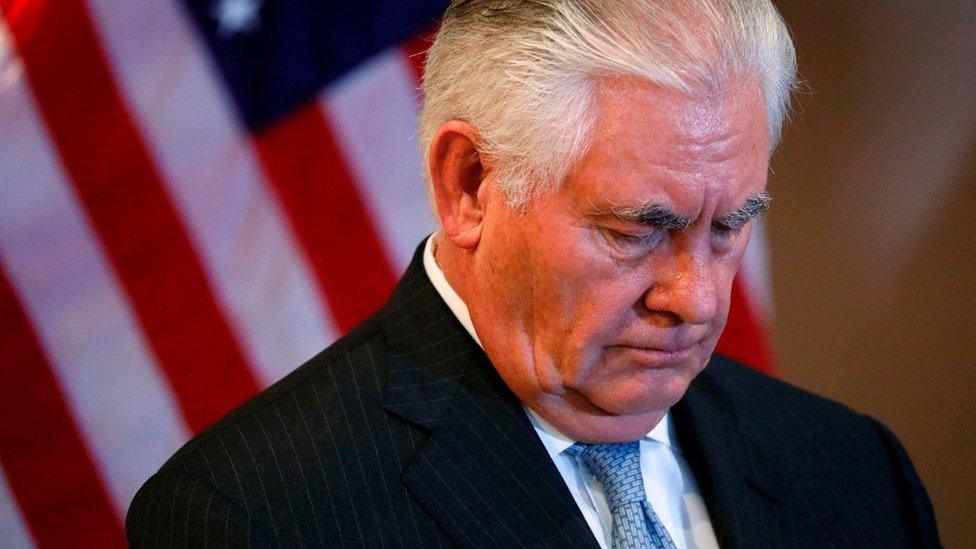
- Published11 December 2016
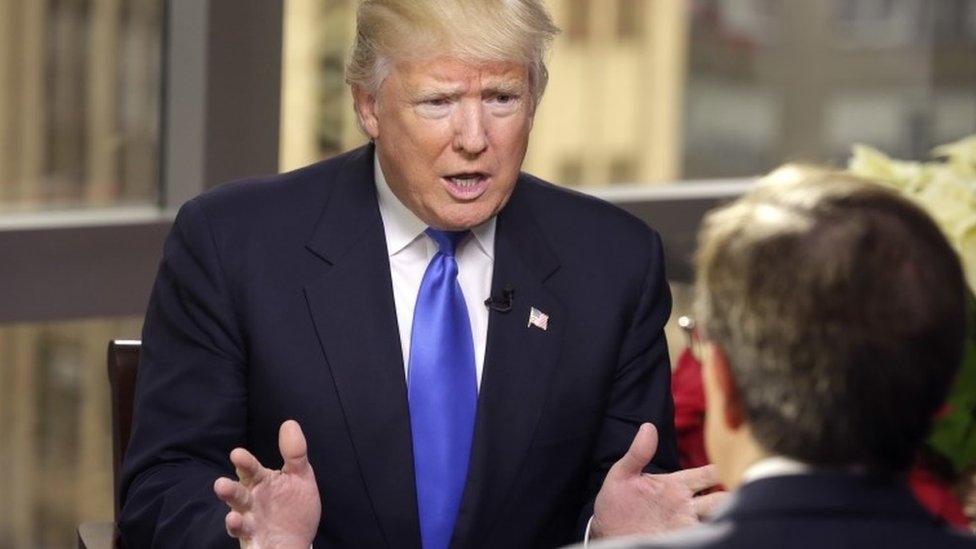
- Published4 December 2016
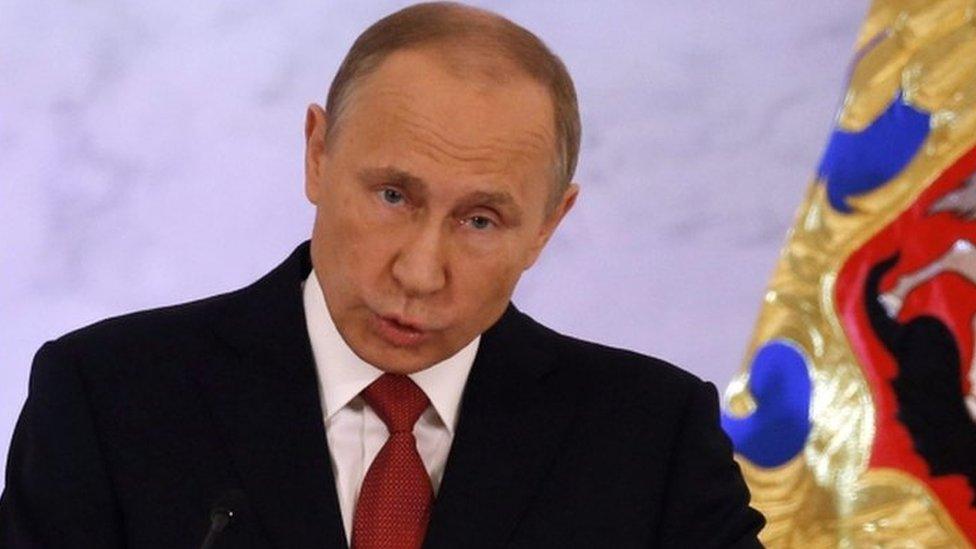
- Published7 December 2016
